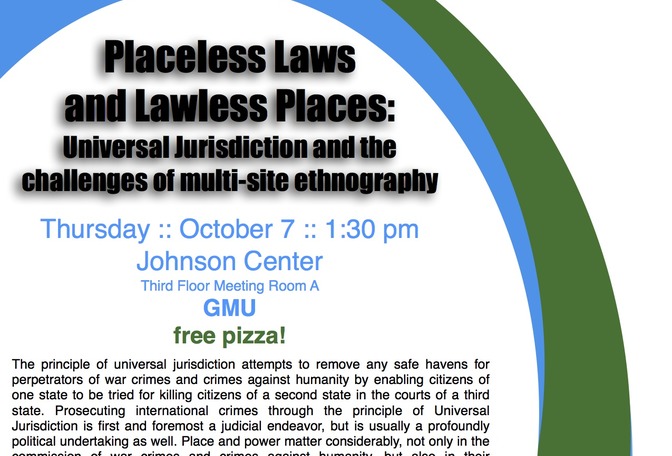- FAMA
- Researchers
-
Projects
- MESPI
- Knowledge Production Project >
-
Political Economy Project
>
- Development and the Uprisings
- Class Formations and Dynamics
- The Palestinian Economy: Fragmentation and Colonization
- Tunisia: A Political Economy in Transition
- Migrant States, Mobile Economies: Rethinking the Political in Contemporary Turkey
- Political Economy of the Middle East: Continuities & Discontinuities in Teaching & Research
- 2016 Political Economy Institute
- The Lebanon Project >
- The Palestine Project >
- The Civil Society Project >
- Middle East Media Project >
- The Egypt Project >
- Refugees and Migrants Project >
- Black-Palestinian Transnational Solidarities Project
- Initiatives
- Events
- Summer Institutes
- Internships
- Blog
|
October 7, 2010 @ 1:30pm
Johnson Center, Room A George Mason University Fairfax, Virginia Sponsored by the Middle East Studies Program, the MEtc Flim Club, and the Ali Vural Ak Center for Global Islamic Studies. Pizza served. Featuring... Dr. Laurie King The principle of universal jurisdiction attempts to remove any safe havens for perpetrators of war crimes and crimes against humanity by enabling citizens of one state to be tried for killing citizens of a second state in the courts of a third state. Prosecuting international crimes through the principle of Universal Jurisdiction is first and foremost a judicial endeavor, but is usually a profoundly political undertaking as well. Place and power matter considerably, not only in the commission of war crimes and crimes against humanity, but also in their prosecution. Ethnographers of emerging global legal institutions and practices face special challenges in finding a place, literally and figuratively, from which to analyze and interpret the processes and outcomes of events that have many contexts and comprise conflicting interests and pronounced power differentials. Laurie King is a social anthropologist, writer, and editor. She conducted her field research in Nazareth, the largest all-Arab city in Israel on a Fulbright doctoral dissertation scholarship in 1992-93. She has worked in journalism in Washington, DC (Middle East Report) and in Beirut on human rights issues. Currently she is teaching at Georgetown University and completing a manuscript for Routledge entitledUniversal Jurisdiction for Humanitarian Crimes: the Belgian Experiment.
0 Comments
Leave a Reply. |
Forum on Muslim and Arab AffairsFAMA is the research arm of the Arab Studies Institute. Archives
June 2017
Categories |
- FAMA
- Researchers
-
Projects
- MESPI
- Knowledge Production Project >
-
Political Economy Project
>
- Development and the Uprisings
- Class Formations and Dynamics
- The Palestinian Economy: Fragmentation and Colonization
- Tunisia: A Political Economy in Transition
- Migrant States, Mobile Economies: Rethinking the Political in Contemporary Turkey
- Political Economy of the Middle East: Continuities & Discontinuities in Teaching & Research
- 2016 Political Economy Institute
- The Lebanon Project >
- The Palestine Project >
- The Civil Society Project >
- Middle East Media Project >
- The Egypt Project >
- Refugees and Migrants Project >
- Black-Palestinian Transnational Solidarities Project
- Initiatives
- Events
- Summer Institutes
- Internships
- Blog


 RSS Feed
RSS Feed
